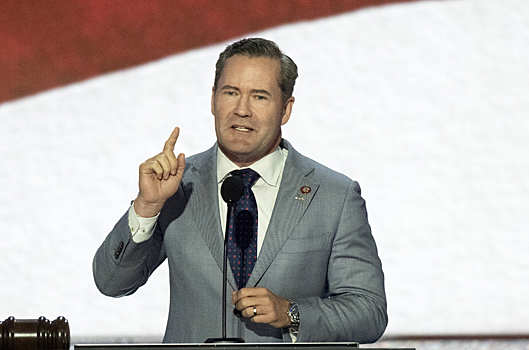What medicine is good for migraine?
Today I will share with you the knowledge of what medicine is good for treating neurogenic migraines. If it happens to solve the problem you are currently facing, don't forget to follow this website. Let's begin now! What medicine is good for neurogenic migraines: Traditional Chinese Medicine and Western Medicine
In daily life, if a patient experiences sudden sharp or throbbing headaches, then these types of headaches are considered neurogenic migraines. If diagnosed with neurogenic migraines, it is recommended for patients to take oral vitamin B1 and methylcobalamin tablets, one tablet at a time, three times a day, for nutritional nerve therapy. At the same time, it is also necessary to take oxcarbazepine orally, one tablet at a time, twice a day, for anti-neuralgia treatment.
If the anti-neuralgia treatment effect is not satisfactory with the above medication, it is also possible to combine it with pregabalin, one tablet at a time, twice a day, for anti-neuralgia treatment. Of course, if the neuralgia is caused by cervical spondylosis compressing the occipital nerve, then it may be necessary to administer mannitol, glycerol fructose dehydration therapy, and intravenous administration of low-dose dexamethasone dehydration therapy in order to achieve good results.
What medicine to take for migraines? When a migraine attack occurs, generally non-specific analgesics are chosen, such as non-steroidal anti-inflammatory drugs (NSAIDs) and opioid drugs. There are also specific medications, such as ergot preparations and triptans. The selection should be based on the severity of the headache, accompanying symptoms, and previous medication use. For mild to moderate headaches, NSAIDs like aspirin, ibuprofen, and diclofenac can be used alone. Some patients can use opioid preparations like meperidine, or choose ergot preparations or triptans. Triptans, such as sumatriptan and zolmitriptan, are commonly used. For moderate to severe headaches, specific treatment medications like triptans or ergot preparations can be directly used. In addition to treatment during attacks, preventive treatment is also included. Preventive treatment is mainly targeted at patients with frequent attacks and those for whom acute treatment is ineffective. There are also many types of preventive medications, such as beta blockers like propranolol and metoprolol, calcium channel blockers like flunarizine and verapamil, and antiepileptic drugs like valproic acid, topiramate, and gabapentin. The treatment of migraines needs to be conducted in stages, with the goal of reducing or terminating attacks, relieving accompanying symptoms, and preventing future recurrences. During an attack, non-specific analgesics and specific pain relief medications are generally used. Non-specific medications include NSAIDs (such as diclofenac sodium, ibuprofen, etc.) and opioid drugs (such as morphine, codeine, dextropropoxyphene, etc.), which are suitable for mild to moderate migraines. Specific medications include ergot preparations (such as ergotamine, dihydroergotamine, etc.) and triptan preparations (such as sumatriptan, naratriptan, etc.), which are suitable for moderate to severe migraines. If accompanied by symptoms such as nausea and vomiting, antiemetic drugs (such as metoclopramide, chlorpromazine, etc.) can be used together. During the relief phase, medication becomes more complex, mainly targeting those with frequent attacks, ineffective acute treatment, or even possible development of permanent neurological dysfunction in cases of special variant migraines. Commonly used medications include beta blockers (such as propranolol, metoprolol, etc.), calcium channel blockers (such as flunarizine, verapamil, etc.), antiepileptic drugs (such as valproic acid, topiramate, gabapentin, etc.), and antidepressants (such as amitriptyline). The aforementioned medications are commonly used for migraine treatment, but they must be used under the guidance of a neurologist to avoid unpredictable side effects.
What medicine is good for a headache? Treatment for a headache ; Dizziness; headache belongs to heart, liver, and kidney disease Five Zang: The kidney stores essence, produces marrow, connects with the brain, and absorbs qi. Brain marrow and bone are strong and healthy, mainly related to kidney failure. The kidney stores Yin and Yang, which should be consolidated and not depleted. One is kidney yang deficiency. The second is kidney yin deficiency. Kidney yang is the foundation of the body. If it weakens, men may experience impotence, premature ejaculation, and sweating. Women may experience dryness, lack of sexual desire, and infertility. Women may also experience coldness or sweating, dizziness, and headache, leading to premature aging. Bone degradation, osteoporosis, lumbar spine degradation. Back pain, facial swelling in women, limb edema in men. Weak qi, bloating in the spleen and stomach, bladder disease, uremia, kidney inflammation, kidney failure. The kidney is the foundation of innate essence.
: "Huangdi Neijing") Blood does not self-generate. It needs the support of the strong yang qi to generate blood. When blood is good, a person becomes strong. When yang is strong, it can generate yin blood. The production of blood must be regulated, and only with the balance of yin and yang can a person hope for a long life.
Note: In the human body, sugar, salt, phosphorus, and berries are essential. The kidney is the foundation of innate essence, but blood does not self-generate. It needs the support of strong yang qi to generate blood. When blood is good, a person becomes strong. When yang is strong, it can generate yin blood. The production of blood must be regulated, and only with the balance of yin and yang can a person be normal. A person must have three treasures: essence, qi, and spirit, in order to have a long life. This is the secret to longevity.
The above is the complete knowledge points explained in this article about what medication is good for neurogenic migraines. I hope it helps you.





Leave a Reply